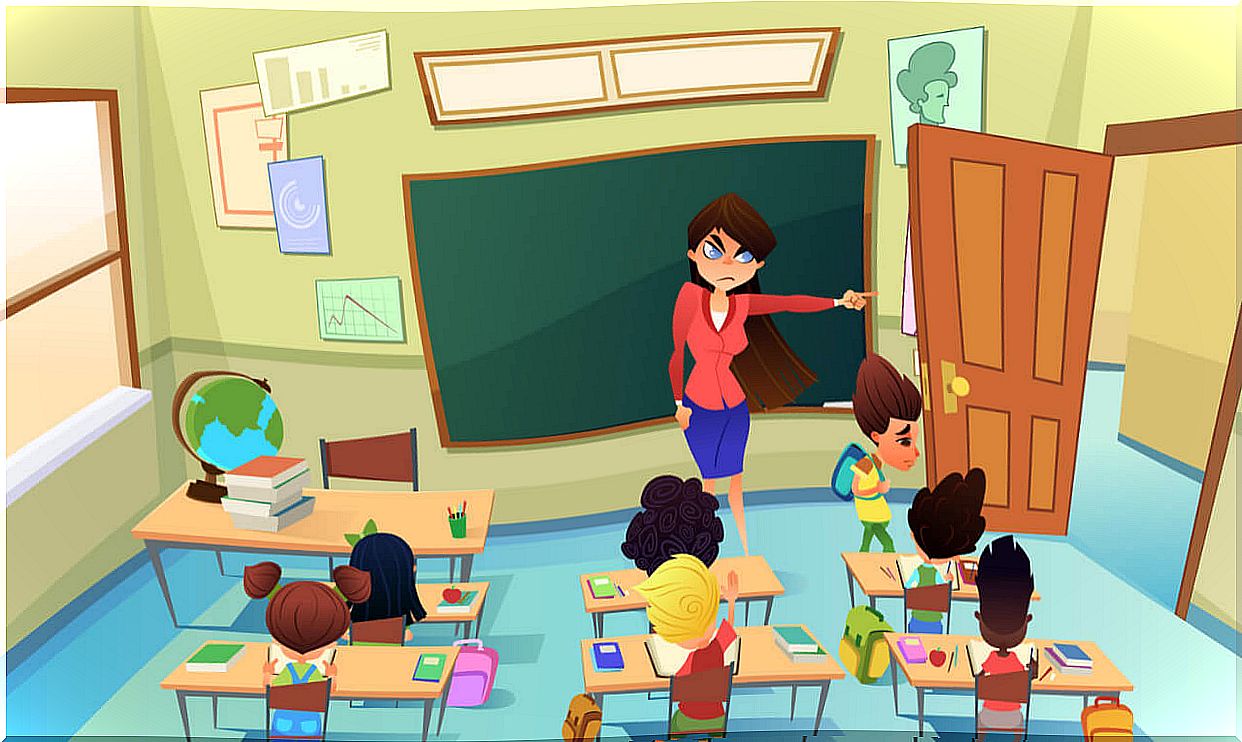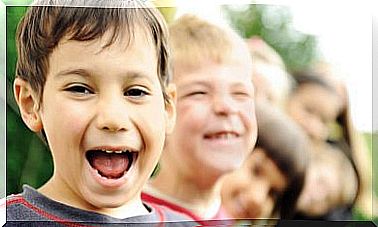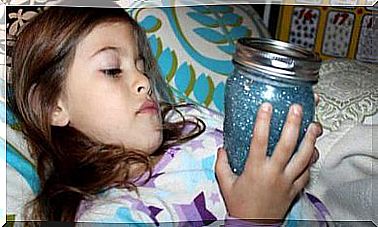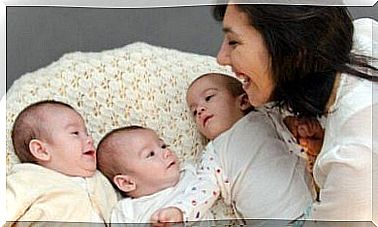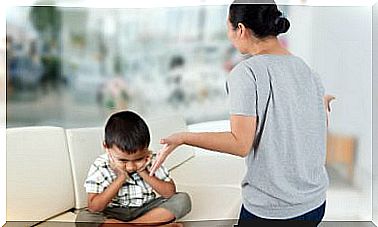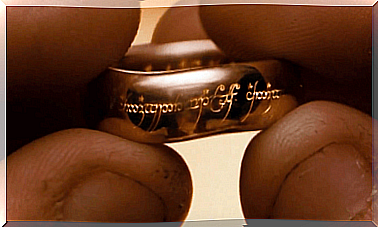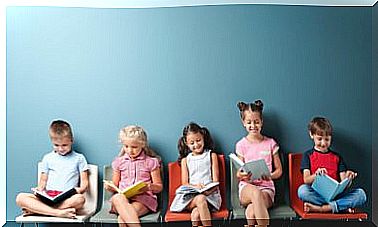This Is How Punishments Affect Children’s Brains
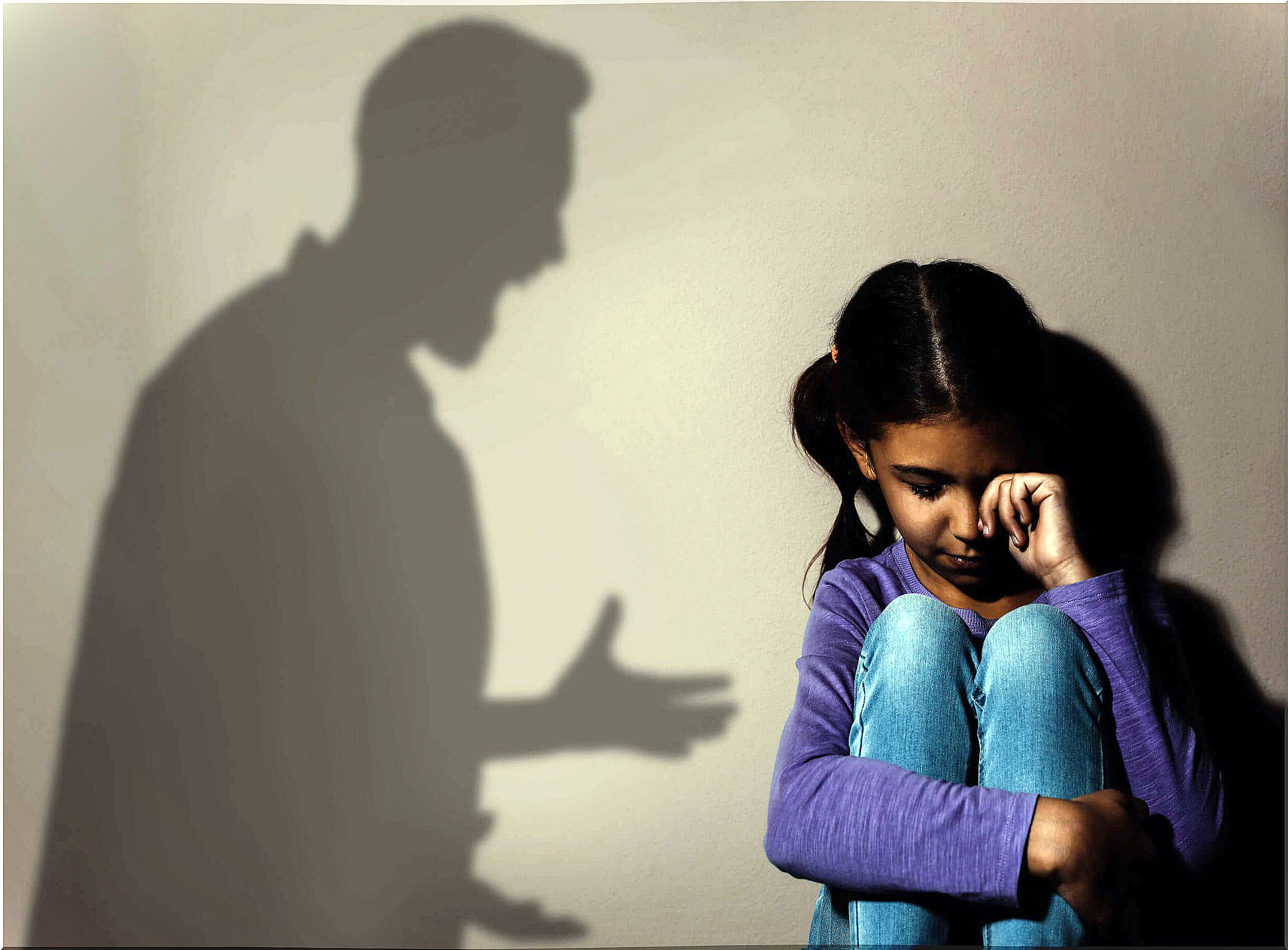
How do punishments affect children’s brains? Beyond the brain level, punishments in childhood, especially physical punishment, can have serious consequences for the child on an emotional and psychological level.
In this sense, experts assure that repetitive physical punishment can damage the child’s self-esteem and lead to feelings of insecurity. In addition, it is a strategy that limits your autonomy and that can make you submissive or, on the contrary, extremely rebellious.
A study published in the journal Pediatrics affirms that physical punishment is a risk factor in the appearance of certain psychopathologies, such as obsessive-compulsive disorder and different behavior and personality disorders. In addition, on a cognitive level it can also harm them. Let’s see how.
How do punishments affect children’s brains?
Have you ever wondered how punishments affect children’s brains? According to the psychologist Rafael Guerrero, based on current research, when we punish a child with a sanction (for example, leaving him without dessert or expelling him from class) due to his bad behavior, something curious happens in his brain.
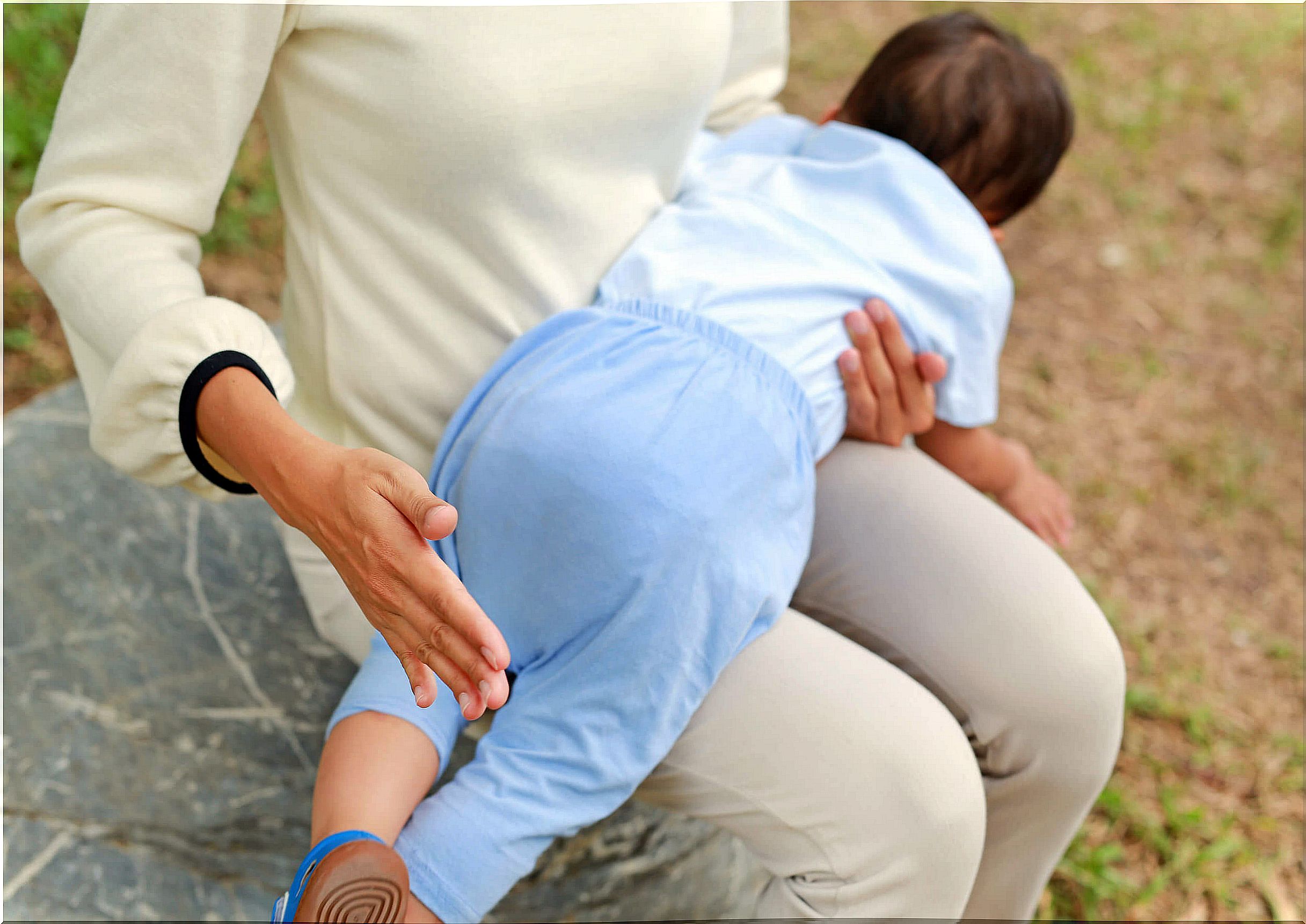
Specifically, the lower areas of it are activated, which are those in charge of the survival instincts. What happens when we punish him? That the little one has three possibilities of answer: “attack”, flee or remain paralyzed. These responses are triggered automatically, reactively, and unconsciously.
Instinctive and emotional structures are activated
On the other hand, at the neurochemical level, large amounts of adrenaline and cortisol (the stress hormone) are released in the brain. The consequence of this is a tendency to act that hinders the child’s thinking. This makes many boys tend to want to “get revenge”, often unconsciously.
The hyperactivation of the lower part of the brain, that related to instincts and emotions, makes it very difficult for the child to connect with the more rational structures, those located in the upper part of the brain, which allow reasoning and develop critical thinking .
Learning difficulties
The consequences of this are a difficulty, on the part of the child, to think about what he has done wrong and a tendency to respond instinctively and emotionally. In other words: learning here is very difficult to occur because the brain is not in a position for it.
On the other hand, let us remember that punishment is a punitive strategy that does not offer adequate alternative behaviors, that is, through punishment the child cannot learn how to do it better because they are not offered the appropriate models for it (as would happen in the overcorrection, for example).
This is how punishments affect children’s brains on intellectual development
Beyond the cerebral consequences that punishment implies in childhood, other studies have observed how this punitive strategy can affect the intellectual development of the child. Along these lines, a study carried out by researchers at the University of New Hampshire (USA) analyzed 806 children between the ages of 2 and 4.
They also analyzed 704 children between the ages of 5 and 9. They subjected both groups of participants to different cognitive tests that were repeated 4 years later.
Influence on IQ
What did you find in your results? That during those 4 years, the children in the first group, who had not received physical punishment, had an IQ 5 points higher than the children whose parents resorted to physical punishment.
As for the second group, the results were similar; children who had not received physical punishment had an IQ 2.8 points higher than children who had received frequent physical punishment. Another conclusion reached by this research is that the frequency with which this type of punishment is applied is also related to the IQ.
In this sense, the higher the frequency of physical punishment, the more delay there was in the children’s cognitive abilities. In addition, the researchers stated that even mild physical punishment, if applied frequently, can affect IQ.
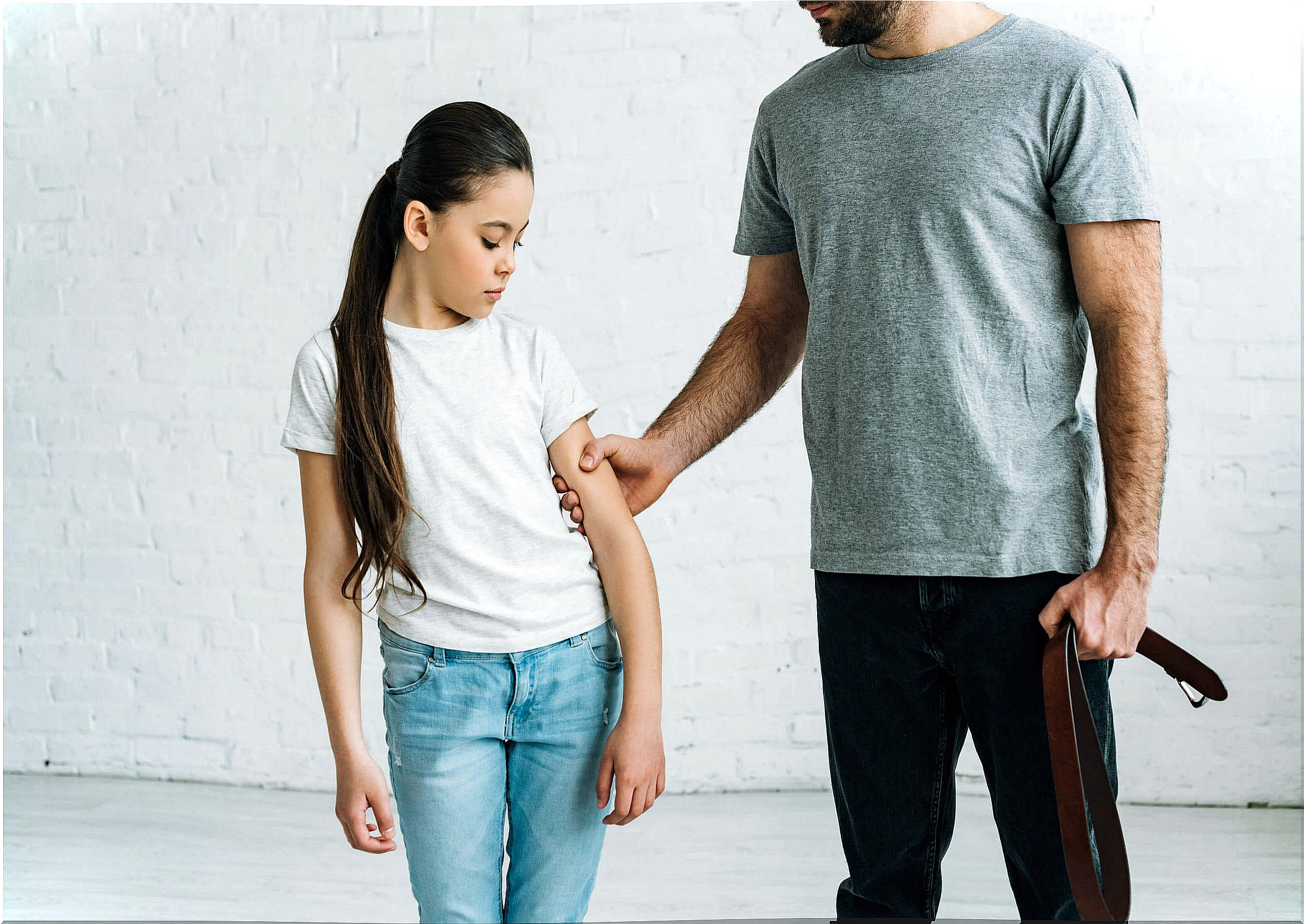
“Educate the children, and it will not be necessary to punish the men.”
-Pythagoras-
Is punishment useful?
As we can see, the consequences in childhood of punishment, whether physical or verbal, are evident. When we punish a child, his most primitive, emotional and instinctive brain is activated, preparing him to attack or flee. This makes a rational approach to the situation difficult and also makes it difficult for you to carry out a critical analysis of the situation.
On the other hand, punishment can also harm the self-esteem of the little ones and we must remember here that it is a strategy that is not effective to teach, only to correct or punish. For this, we have other much more effective strategies from respectful parenting, which are committed to understanding, respect and love.
